#merchants guild
Note
Do you understand how Kirkwall politics work? Ik theres a viscount but like…is it just viscount and Templar’s? Three people?
i don't know a lot off the top of my head but let's take a look!
kirkwall is ruled by a viscount. it does seem to be a hereditary position, but if the viscount has no heirs or the line is otherwise removed from power, kirkwall's nobility have the right to elect a new viscount. so there's definitely an established noble class who have a powerful say in what happens. world of thedas lists the amells, the threnholds, and the reinhardts as the most powerful hightown houses at the start of the dragon age, but both the amells and threnholds collapsed before da2. (prior to their collapse, the amells were one of the foremost noble families in the whole free marches, with four centuries of history to their bloodline.) we interact with families like the harrimanns and de launcets in da2 and leandra mentions the reinhardts still being around.
viscounts' lines don't seem particularly long-lasting; marlowe dumar is the first in his. his predecessor perrin threnhold inherited the role from his father, but the father was also first in his short-lived line and "took power through a campaign of intimidation" rather than just, like, inheriting it. (this is confirmed by a codex stating the threnholds only came to power less than a week after maric retook the fereldan throne.) the implication is that saemus dumar would have been a potential heir to marlowe had he lived, but i don't remember anyone taking this possibility seriously in the game and given his politics i'm sure the nobility and templars alike would never remotely consider allowing it
the title of viscount was introduced by the orlesians, who ruled kirkwall from 7:60 storm to 8:05 blessed after liberating it from a four-year qunari occupation. they also introduced the kirkwall city guard, a force answerable to the viscount. the people of kirkwall threw out the orlesians but kept the title and the associated guard.
the templars have no official control of the city. however, the viscount's office is effectively so weak by the time of da2 that it is impossible to hold without templar support. this is because of what happened under viscount dumar's predecessor, viscount perrin threnhold. brother genitivi refers to perrin as "even worse" than his "vicious thug" father. perrin used those ancient chains in kirkwall's harbour to block orlesian ships and charge exorbitantly heavy taxes on them. this was naturally a poorly received move in orlais but also in kirkwall, as it limited trade, the lifeblood of the city. divine beatrix iii, who the codex claims was acting "as a friend to the emperor", ordered the templars to pressure the viscount into stopping, despite knight-commander guylian having refused similar requests from kirkwall's nobles and insisting even to the divine that their place was to protect the city from magic not from itself. perrin responded by hiring a mercenary army—odd that it wasn't the city guard, possibly implying they turned against him in favour of the nobles?—that ultimately stormed the gallows and executed guylian, with the intention of expelling the templars entirely from the city. in the end perrin was arrested, and presumably executed, if his successor being gifted his blood-encrusted signet ring as a threat is anything to go by. this seems to have been well received in kirkwall; the templars "were hailed as heroes". guylian was replaced with meredith, who personally directly appointed marlowe dumar
meredith's choice is an interesting one. the dumars were noble, but considerably modest compared to other noble families, with some of their income from trade that the dumars personally oversaw (traditional noble income tending to come from landowning, with actually having a job being looked down upon). marlowe's wife wasn't noble or an arranged match, only the daughter of a prosperous cartographer. meredith told marlowe that he chose him because he was "humble" as opposed to the "entitled degenerates" she considered the rest of the nobility, but it's obvious this wasn't merely her respecting the value of hard work. she openly threatened him on instalment to the office she had chosen him for. instead of appointing a strong viscount who could restore the office, allowing the templars to step back, meredith had none of guylian's scruples, and appointed a weak one the templars would continue to control. "the knight-commander's influence was evident in almost every one of marlowe's decisions."
this turned into more of an essay on recent kirkwall history than an explanation, but hopefully some of it's helpful in fleshing out the landscape. as a further note as well as the nobility i would expect merchants, guilds, etc. to hold massive influence in a city built on trade. there's a reason for example that the dwarven merchants' guild is visibly extremely well-established in kirkwall with its own large area in hightown; not the most trustworthy source but varric also claims they have "fingers in all these pies" in the lowtown market and own every tavern in hightown. i very much doubt human merchants are letting the dwarves have all the fun so it can be reasonably assumed they hold similar influence
#marlowe dumar is one of my fav da2 npcs i think he's really compelling#kirkwall#marlowe dumar#perrin threnhold#knight-commander meredith#merchants guild#i wasnt totally familiar with how perrin and guylian's thing went down until i went through this just now#REALLY good stuff here for my points abt chantry and orlesian imperial power being interlinked. crunchy#also isn't guylian a brand of chocolates#long post
62 notes
·
View notes
Text
The way Dorian feels offended is gold, as if he wasn't treated like a prince his entire life 😂😂😂
#dragon age#dragon age inquisition#dai#dragonage#da meme#dorian#Dorian pavus#magister Dorian pavus#pavus#Tevinter#mage#magister#magisterium#deshyr#merchants guild#Varric#Varric tethras#tethras#rogue#qunari Inquisitor#mage Inquisitor#Inquisitor Addar#Addar#da video#dragon age video#dragon age party banter#cassandra#da banter#da party banter#cassandra pentaghast
13 notes
·
View notes
Text
For any murder hobos or thieves that mess with merchants...
I like this idea, and I certainly have a powerful Merchants Guild in my world.
#Murder Hobo#Thieves#Merchants#Merchants Guild#Dungeon Master#DnD#D&D#Dungeons and Dragons#Fantasy#TTRPG#Tabletop#RPG#Roleplaying Game
0 notes
Text

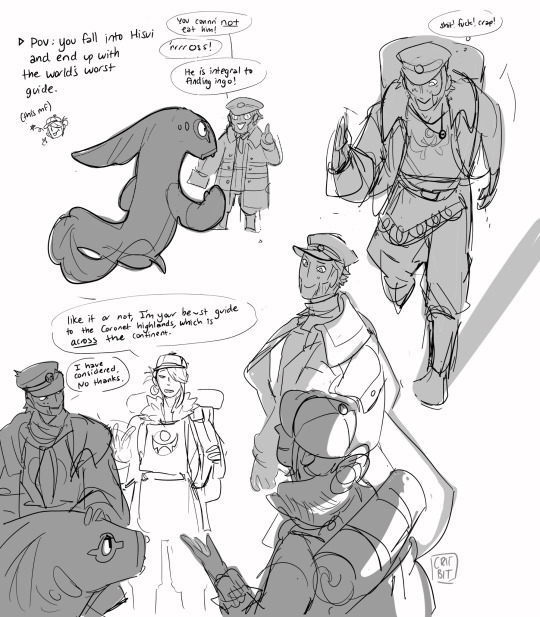
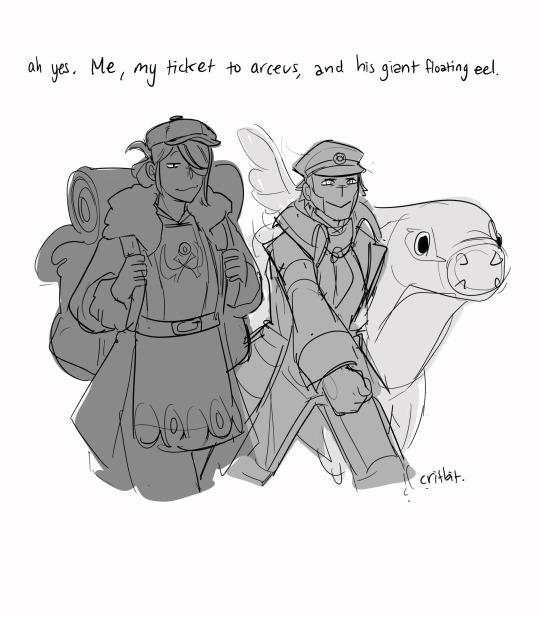
Au where Emmet gets eebie jeebied into Hisui right before the events of Pokemon Arceus and ends up hunting down a shriveled onion with time powers with the world’s worst tour guide. ((Also at some point learns Ingo is living in the mountains this entire time.))
(Same au as the emmet and elektross get tossed into the past! I will simply never officially nail the timeline down beyond growing it like a barnacle cloister.)
Masterlist of my submas stuff
#myart#art#sketchbook#submas#submas comic#emmet#pokemon emmet#pokemon#pla volo#pokemon volo#you heard of warden ingo#now get ready for shitty merchant emmet#he doesnt know any kantonese beyond what elesa taught him#needs volo to translate#ginkgo guild#snatched his ass up because he can accurately explain what the shit from the time bubbles are#and they’re intending to make bank#especially off these new finangle things like a toaster#elektross#togetic#subway boss emmet#emmet in hisui#eelektross
3K notes
·
View notes
Text
A warm thanks to all my Zero followers and the Zero Members of the Merchants Guild generously funding and Bankrolling my stolen /X/ memes! Let's keep on growing as a community! Without all of you and the voices in my Head this wouldn't be possible <3

1 note
·
View note
Text
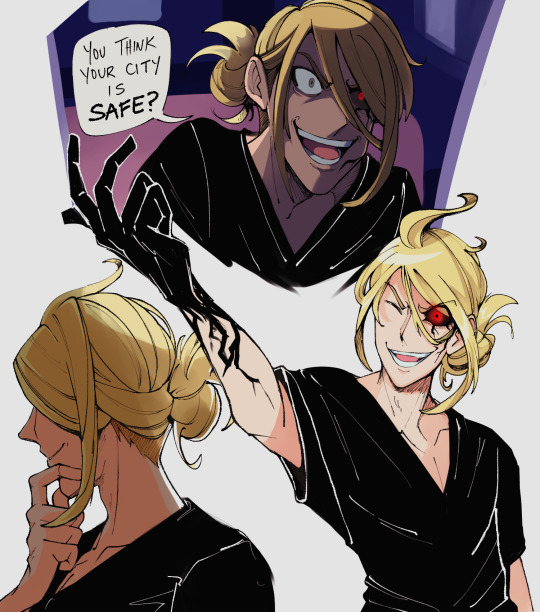
possessed!volo au doodles
#volo#pokemon volo#merchant volo#ginkgo guild volo#my art#i wanna bring this au back tbh#gosh it's been a year at least right#i think i outlined details for it back then#at least some details#anyway yeah the arm thing...#if anyone has played the world ends with you and knows who sho is welp#it's based on that#design wise at least LOL#also i am slowly learning to just come to a stopping point with art#so this is a little messier but you know#OH also the city he's talking about is nimbasa
1K notes
·
View notes
Text

None of these words are in the PokéBible ¬△¬!
#PokemonLEGENDS#ノボリ#Submas#Pokemon#Warden Ingo#Ginkgo Guild Merchant Emmet#PLA#My Art#Emmet will say he's trying to cure Ingo's amnesia... but he's just bullying his older brother at this point-
2K notes
·
View notes
Text
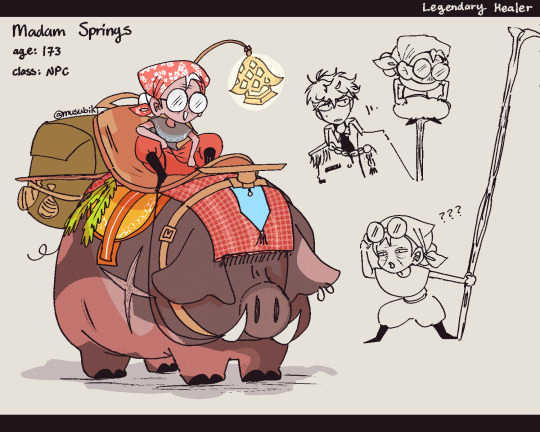
new npc: madam springs, master of all-natural healing practices
#the cat witchs guild#the misc adventures of mochi and lime#madam springs#art#ocs#original#tcwg#tmaomal#semi-cryptid#all purpose healer#insane capabilities and non magic#shes NOT timeskip exclusive.#shed whack people with that stick#or push one specific pressure point and they twist up like a pretzel#another dont-mess-with-this-npc character#not as horrifying in nature as the merchant but i personally would not want to fight her#has a beef with mochis grandma
299 notes
·
View notes
Text
💛🧡💙🤍

#pokemon#volo pokemon#merchant volo#pokemon volo#volo fanart#volo#ginkgo guild member volo#pla volo#pokemon legends volo#pokemon wielder volo#volo pla#wielder volo#kandi bracelet#kandicore#kandi#Pokémon#pokemon legends fanart#pokemon legends arceus#pla#pokémon legends arceus#Volo Pokémon#art#my art#bracelet#insert cool tags here#default dances
94 notes
·
View notes
Text
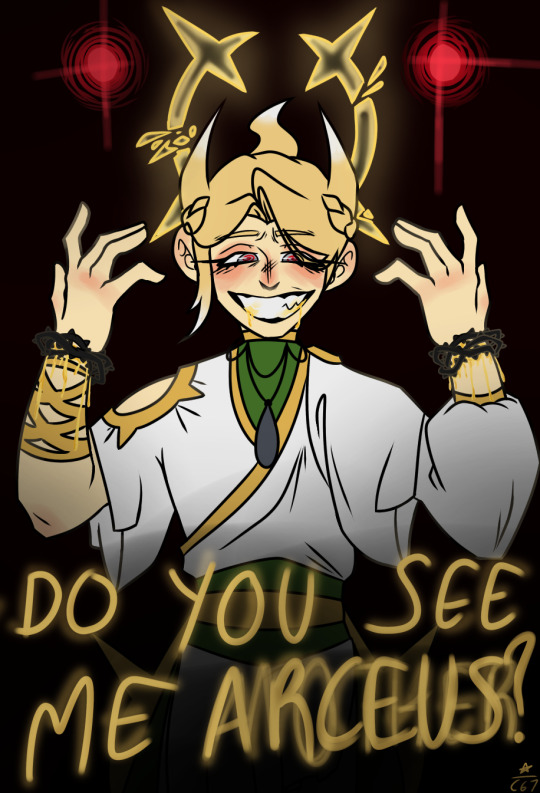
Eldritch recognition.
#pokemon volo#volo#pla volo#ginkgo guild member volo#merchant volo#legends arceus#legends arcued fanart#my fanart#fanart#im tired. this took three hours#its 3am#goodnight#pokemon legends arceus#lets see what people recognize in this
125 notes
·
View notes
Text
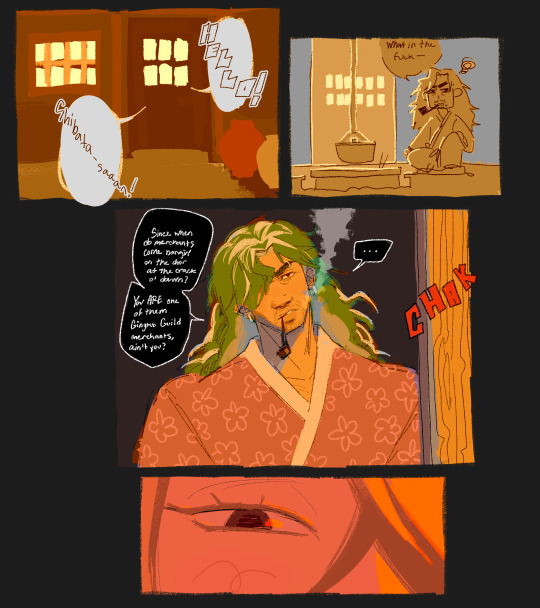

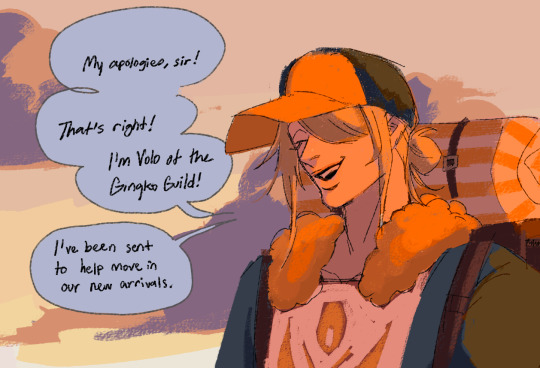
volo meeting rohan's dad
#pokemon#pokemon legends arceus#oc#volo#hansuke#my art#ive explained like NOTHING of my vastly different headcanoned version of PLA on here but in short#for the purposes of like giving context#my version of volo is not actually employed by the gingko guild he just murders a merchant for their uniform#and proceeds to masquerade as a normal retail worker#why would he do this? bc hes insane and manipulating ppl is fun to him. hes extremely stunted and cannot interact w other ppl normally#after being spurned by his ppl for heresy and spending over a thousand years alone#so he comes to rohan and hansuke who are powerful trainers and warriors bc he is curious as to if and how they can aid his plan#but that shit starts going south for him real quick bc he actually becomes kind of attached to rohan lol
149 notes
·
View notes
Note
Please tell me more about neighbourhood PMCs in renaissance Italy
It would be my pleasure! (My research into this owes a lot to the excellent Power and Imagination: City-States in Renaissance Italy by Lauro Martines.)
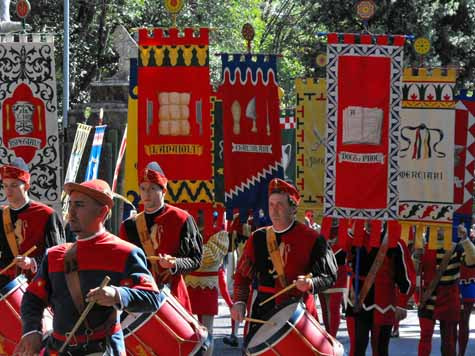
The first thing to note that, unlike the condottieri, these were not private military companies. Rather, the neighborhood military companies (in the sense of a military unit, rather than a profit-making entity) were self-defense organizations formed as part of a centuries-long political struggle for control over the urban commune between the signorile (the urban chivalry)/nobilita (the urban nobility) and the populo (the guilded middle class, who claimed to speak on behalf of "the people").
This conflict followed much the same logic that had given rise to the medieval commune in the first place. Legally, the communes had started as mutual defense pacts between the signorile and the cives (the free citizens of the city) against the rural feudal nobility, which had given these groups the military and political muscle to push out the marquises and viscounts and barons and claim exclusive authority over the tax system, the judicial system, and the military.
So it made sense that, once they had vanquished their enemies and established the commune as the sovereign, both sides would use the same tactic in their struggle over which of them would rule the commune that ruled the city. The signorile and nobilita formed themselves into consorteria or "tower societies," by which ancient families allied with one another (complete with dynastic marriage alliances!) to build and garrison the towers with the knights, squires, men-at-arms, and bravi of their households. These phallic castle substitutes were incredibly formidable within the context of urban warfare, as relatively small numbers of men with crossbows could rain down hell on besiegers from the upper windows and bridges between towers, even as the poor bastards on the ground tried to force the heavy doors down below.
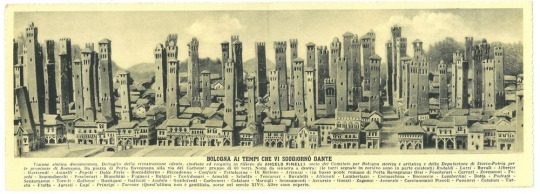
To combat noble domination of communal government, achieve direct representation on the political councils, establish equity of taxation and regulate interest rates, and enforce legal equality between nobility and citizenry, the populo formed themselves into guilds to build alliances between merchants and artisans in the same industries. However, these amateur soldiers struggled to fight on even footing with fully-trained and well-equipped professional soldiers, and the guild militias were frequently defeated.
To solve their military dilemma, the populo engaged in political coalition-building with the oldest units of the urban commune: the neighborhoods. When the cities of medieval Italy were originally founded, they had been rather decentralized transplantations of the rural villages, where before people had any conception of a city-wide collective their primary allegiance was to their neighborhood. As can still be seen in the Palio di Siena to this day, these contrade built a strong identity based on local street gangs, the parish church, their traditional heraldry, and their traditional rivalries with the stronzi in the next contrade over. And whether they were maggiori, minori, or unguilded laborers, everyone in the city was a member of their contrade.
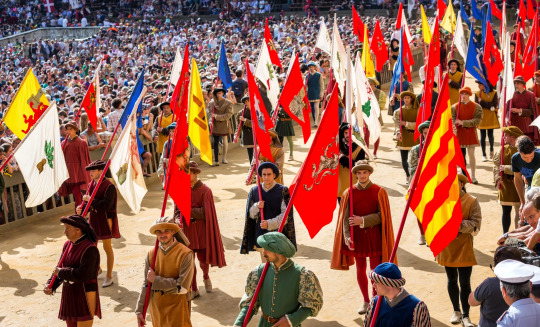
As Martines describes, the populo both recruited from (and borrowed the traditions of) the contrade to form their armed neighborhood companies into a force that would have the manpower, the discipline, and the morale to take on the consorteria:
"Every company had its distinctive banner and every house in the city was administratively under the sign of a company. A dragon, a whip, a serpent, a bull, a bounding horse, a lion, a ladder: these, in different colors and on contrasting fields, were some of the leitmotifs of the twenty different banners. They were emblazoned on individual shields and helmets. Rigorous regulations required guildsmen to keep their arms near at hand, above all in troubled times. The call to arms for the twenty companies was the ringing of a special bell, posted near the main public square. A standard-bearer, flanked by four lieutenants, was in command of each company."
To knit these companies organized by neighborhood into a single cohesive force, the lawyers' guilds within the populo created a state within a state, complete with written constitutions, guild charters, legal codes, legislative and executive councils. Under these constitutions, the populo's councils would elect a capitano del popolo, a professional soldier from outside the city who would serve as a politically-neutral commander, with a direct chain of command over the gonfaloniere and lieutenants of the neighborhood companies, to lead the populo against their noble would-be overlords.
And in commune after commune, the neighborhood companies made war against the consorteria, taking the towers one by one and turning them into fortresses of the populo. The victorious guilds turned their newly-won military might into political hegemony over the commune, stripping the nobilita of their power and privilege and forcing them either into submission or exile. Then they directed their veteran neighborhood companies outward to seize control of the rural hinterland from the feudal aristocracy, until the city had become city-state.
(Ironically, in the process, the populo gave birth to the condottieri, as the nobility who had lost their landed wealth and political power took their one remaining asset - their military training and equipment - and became professional mercenaries. But that's a story for another time...)
#history#historical analysis#renaissance history#renaissance fantasy#medieval cities#city-states#urban communes#guilds#city charters#guild charters#mercenaries#nobility#artisans#burgher rights#merchants
134 notes
·
View notes
Text
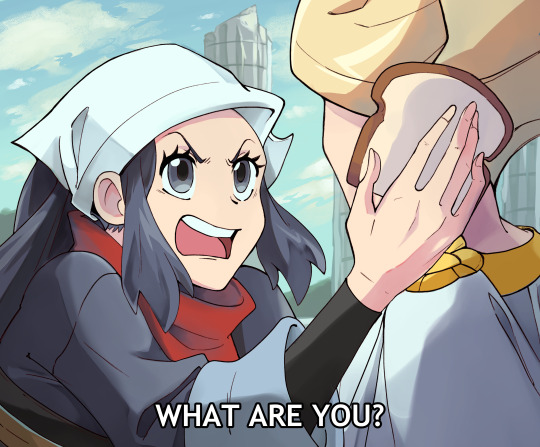
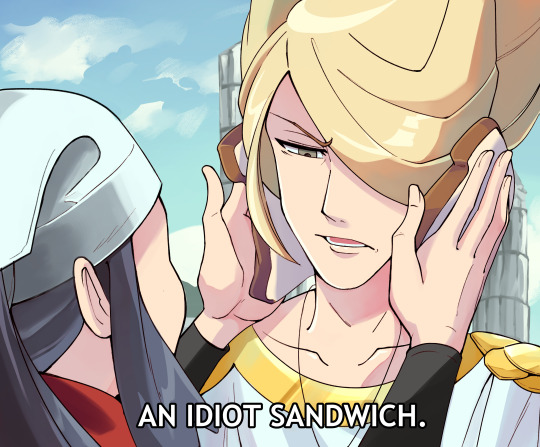
he is indeed an idiot sandwich
#pokemon akari#pokemon volo#ginkgo guild volo#merchant volo#pokemon legends arceus#my art#i had drop everything i was doing and draw this as soon as i remembered it#actually never knew it was originally a gordon ramsay thing#the more you know sdlfkjfg#aaaanyway yeah sorry i couldn't help myself#just a funny little break in between other stuff
2K notes
·
View notes
Text
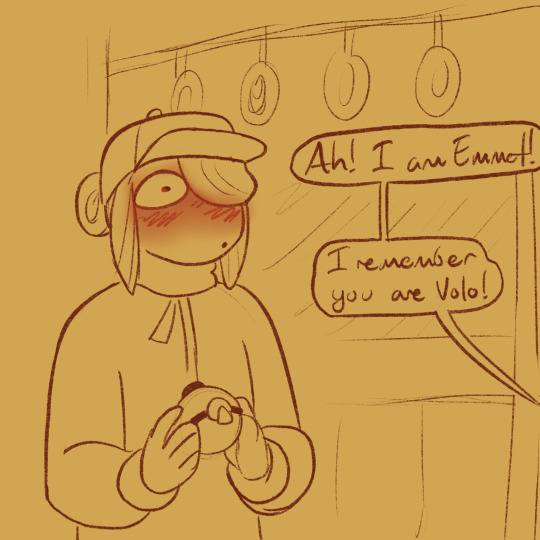
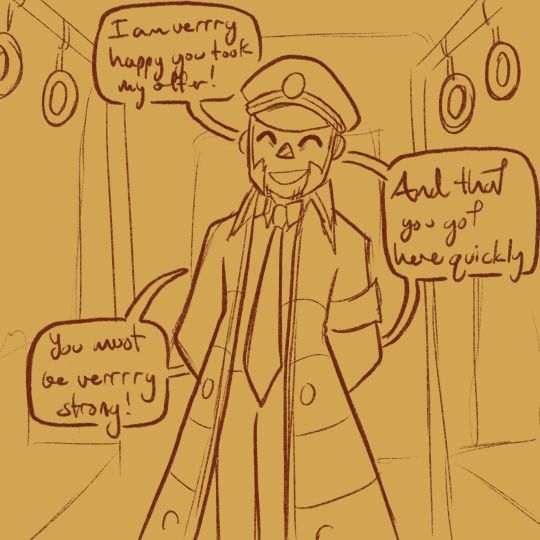
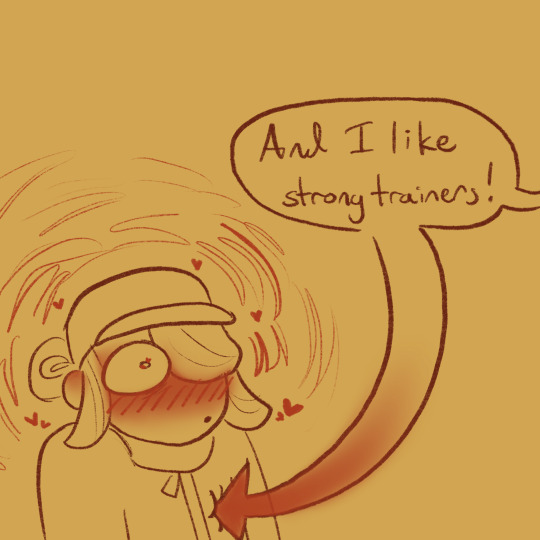

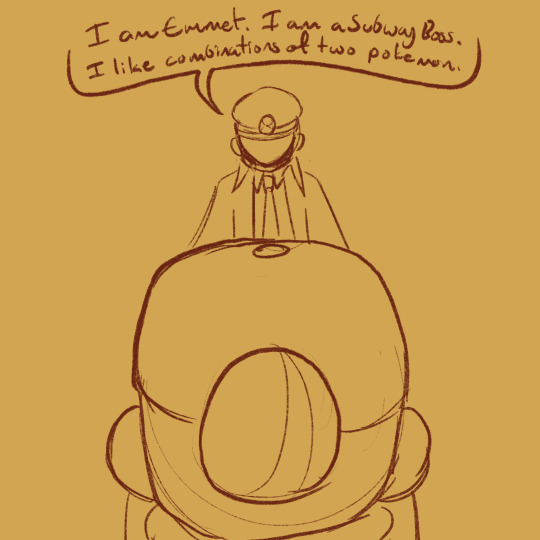


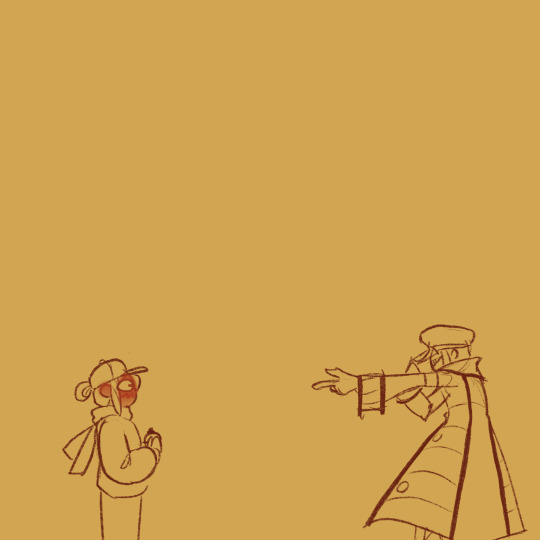

Volo makes it down the subway line! What he finds at the end? Cupid and a concussion!
Prev. / Next
Dear Emmet has no idea the power he holds
Full speed ahead to even more intense crushing!
Enjoy!
#submas#subway boss emmet#volo legends arceus#ginkgo guild member volo#merchant volo#emmet#pokemon emmet#trainwreckshipping#softwreck series
727 notes
·
View notes
Text


volo’s turn for sylveonification. someone called it sylveolo and it’s haunted me since
#volo#pokemon volo#merchant volo#volo pokemon#pokemon legends volo#pla volo#volo fanart#ginkgo guild member volo#volo legends arceus#wielder volo#pokemon legends arceus#volo pla#sylveon#sylveon pokemon#pokemon#pokémon#pokemon sylveon#pokemon legends#rei#rei pokemon#pokemon rei#pokémon rei#rei pokémon#pla#corruptedcaffeine#art#sylveolo
136 notes
·
View notes